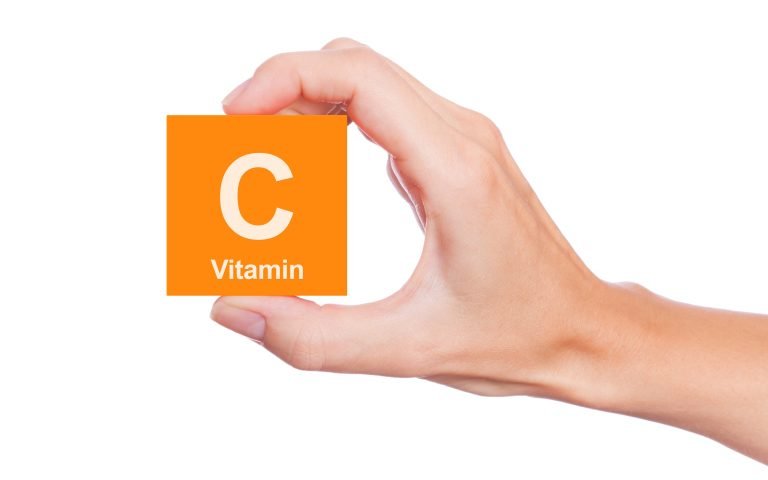
Page Contents
Vitamin C is perhaps one of the most popular and well-known vitamins around. This is not only for those suffering from hair loss but for literally everyone. That said, there is still probably a bit about Vitamin C that you might not know.
What Vitamin C Does For You
Vitamin C provides countless benefits for your body. Perhaps one of the most important functions of this vitamin is the fact that it helps to manufacture new cells. This is needed to replace cells that are old, but it also is needed for repair when they get damaged.
Specifically, Vitamin C is used to create a protein known as collagen. Collagen goes into the making of your skin, ligaments, blood vessels, teeth, and bones. These parts of your body may not be as vital as your internal organs but are essential nonetheless. In fact, certain problems with your teeth and gums can be directly linked to not getting enough Vitamin C.
Also, besides going into the creation of collagen, Vitamin C also has some antioxidant properties to it. This antioxidant is similar to the ones offered by Vitamin E and Zinc. All antioxidants are responsible for getting all of those damaging free radicals out of your system.
Other than that, Vitamin C is almost legendary for helping your immune system when you have a cold or flu. This popularity exists for some very good reasons, and Vitamin C really does help out your immune system.
Finally, one last thing about Vitamin C that is important to know is that it is not a water-soluble vitamin. This means, no matter how much extra Vitamin C that you intake, your body is not going to store any of this extra up.

How Vitamin C Helps Your Hair
As you can see, Vitamin C can do a lot of things for you. While these benefits are simply for your health in general, they can both directly and indirectly benefit your hair as well. This includes helping you with your hair loss.
Replacing cells that are old and damaged is something that your scalp will need just as much as the rest of you. As for the collagen protein that Vitamin C makes, this is also something that your scalp needs and uses to build your hair.
That collagen is also used in the making of your blood vessels also means it is necessary for your circulation. As you may know, circulation is one of the big parts of hair growth. The other things that collagen helps with are more indirect in the way they help.
By helping your bones, muscles, and ligaments replace old cells with new ones, collagen helps these stay strong. Obviously, strong bones are going to be harder to break and strong ligaments harder to tear. This saves your body the nutrients that would be spent in repairing these when injured.
Free radicals, while damaging to your body no matter where they end up, are particularly damaging to your hair. These can damage your hair in any number of different ways and result in hair that is brittle and thin. Therefore, the helpful antioxidants that Vitamin C provides to get rid of free radicals are very useful for growing hair.
Finally, Vitamin C assisting your immune system is also good for your hair both directly and indirectly. Directly, because there are certain fungal infections that can infect your scalp and lead to hair loss. Indirectly, since a healthy body finds it easier to grow healthy, thick hair for you.
Related Reading
How To Get Vitamin C

Getting Vitamin C is actually really easy to do. Of course, the best way for you to get Vitamin C in your body is to simply eat foods that are rich in it. Fortunately, most of the foods that you already love to eat are ones that have this vitamin in them.
The most well-known foods that have Vitamin C in them are fruits and especially citrus fruits. Other fruits such as mango, strawberries, blueberries, papaya, kiwi, and pineapples have loads of Vitamin C in them too. However, fruits are not the only foods that have this vitamin.
Other foods like cauliflower, turnip greens, red peppers, spinach, tomatoes, and winter squashes also have noteworthy amounts of Vitamin C in them. In fact, most fruits and vegetables have at least a little Vitamin C in them.
However, on the note of foods that have Vitamin C in them, this only applies if they are raw. Cooking any of these foods will decrease the amount of Vitamin C that they have in them.
If, for whatever reason, you simply can’t intake enough Vitamin C into your diet naturally, there are other options. There are many Vitamin C supplements available for you to choose from, which you can take as needed.
Powder is a common form of Vitamin C, with many options here. Flavored serving-sized packets that you simply dump in a glass of water and drink are particularly popular. However, there are also unflavored powders that you can add to smoothies.
However, Vitamin C supplements are also available in pills, tablets, gummies, lozenges, and even as a liquid. Basically, any way that you might want to take Vitamin C, you can do so.
Too Much Or Too Little Vitamin C
Getting too much Vitamin C is really hard to do, especially since your body doesn’t store it up. However, it is possible if you go too overboard with it. Any excess Vitamin C that your body doesn’t use has to be flushed out through your urine.
This can be rough on the organs that have to do all that work, such as your kidneys and bladder. More than that, in extremely high doses, Vitamin C can cause other things like nausea or heartburn. This is because Vitamin C tends to be acidic.
Though this is very rare, take precautions when taking extra Vitamin C, such as drinking extra water. Also, take it with a meal if you are going with a supplement form of Vitamin C. That way, the food will help dilute some of the acidity.
As for getting too little Vitamin C, it is commonly known that this can result in what is called scurvy. This is a medical disorder that is solely caused by not getting enough Vitamin C. It was a scourge in the 1600s until one Royal Navy surgeon discovered that it was prevented by eating fruits.
Since fruits did not stay good for the long sea voyages, lime juice or lemon juice was consumed. This is where the word ‘Limeys’ in reference to sailors came about. Without the needed Vitamin C, scurvy could get quite severe, even resulting in the sailors’ teeth commonly falling out.
Other, less severe symptoms of Vitamin C deficiency include things like muscle pain, brittle hair, and more. Usually, the first symptoms to show themselves are lethargy, shortness of breath, and muscle and bone pains. Other things you may notice when deficient in Vitamin C is that you will bruise easier and take longer to heal.
The Right Amount Of Vitamin C

The exact amount of Vitamin C that you need will depend on a variety of different factors. The recommended daily dosage of Vitamin C, though, is around 100 mg for men and 80 mg for women. This is the amount that you should be intaking every day.
However, there are certain conditions that can cause your body to need more Vitamin C. For example, being sick with even a mild cold will result in you needing more of this vitamin. Also, if you smoke are have any other similar habits, you will need more Vitamin C too.
This is because when you smoke, your body will need to repair and replace the cells in your lungs. In addition, your immune system will need more help in this circumstance. A good amount for smokers is at least 35 mg more than the normal recommended amount on a daily basis.
In short, anything that requires you to replace cells or that involves the use of your immune system also causes you to need more Vitamin C. As mentioned, it is almost impossible to intake too much Vitamin C, so make sure that you get more than what you might need.
Vitamin C is also needed more by women who are pregnant or breast-feeding. Their baby needs Vitamin C too, and the only way they are getting it is from their mother. Once again, somewhere around 35 mg onto the normal daily amount is a good quantity to take.
Finally, if you are deficient enough in Vitamin C that you are showing some of the symptoms of scurvy, you will definitely need to take more Vitamin C. In this case, you should take closer to 100-200 mg of Vitamin C per day for a couple of weeks.
Other Noteworthy Vitamin C Facts
With how popular Vitamin C is, it should come as no wonder that different companies are very interested in it. In fact, one Vitamin C product that is still new on the market is a liposomal Vitamin C. This essentially combines Vitamin C with lecithin in order to make it fat-soluble.
This means that by taking this form of Vitamin C, your body will be able to store it up. That said, it also means that you can build up too much Vitamin C in your system and harm your organs. Therefore, you should not take more Vitamin C than your daily recommended amount.
Also new from a Korean beauty company is what they call Vitabrid C¹². This compound has Vitamin C as the main ingredient and is meant to be an “anti-aging potion for the scalp.” The new form of Vitamin C is designed to sink into your scalp to promote collagen production.
Other than that, Vitamin C is actually something that can be used as a safe, chemical-free hair dye remover. So, if your hair dye job comes out a weird color, this can help you get back to your original color without having to damage your hair further by using a chemical hair dye remover or bleach.
Simply crush up some Vitamin C tablets or get some plain Vitamin C powder that is not flavored. Mix this with a shampoo and leave it in for about 30 minutes. Then, rinse the Vitamin C and shampoo out of your hair. It may take more than one time, but it should work.
Finally, one last Vitamin C fact to note is that this vitamin sometimes goes by the name of ascorbic acid. However, wheat-sensitive people should beware of this form since sometimes wheat is used to make it.

Final Thoughts
Although Vitamin C may not do a whole lot for your hair directly, it can be well worth adding more of this to your diet as a small way of helping your hair grow. It will help your hair as a preventative measure by keeping your scalp as healthy as possible.
Even in its “normal” form, Vitamin C is found in many topical treatments for both your skin and your hair. Many products that have Biotin in them also include at least a little Vitamin C in them to fight aging.
If you feel your Vitamin C levels are low, it won’t hurt to take more than the recommended daily amount. Even in the case of scurvy, taking more than you need for a few weeks should be all you need. With some companies coming up with new forms of Vitamin C, this is easier than ever.






